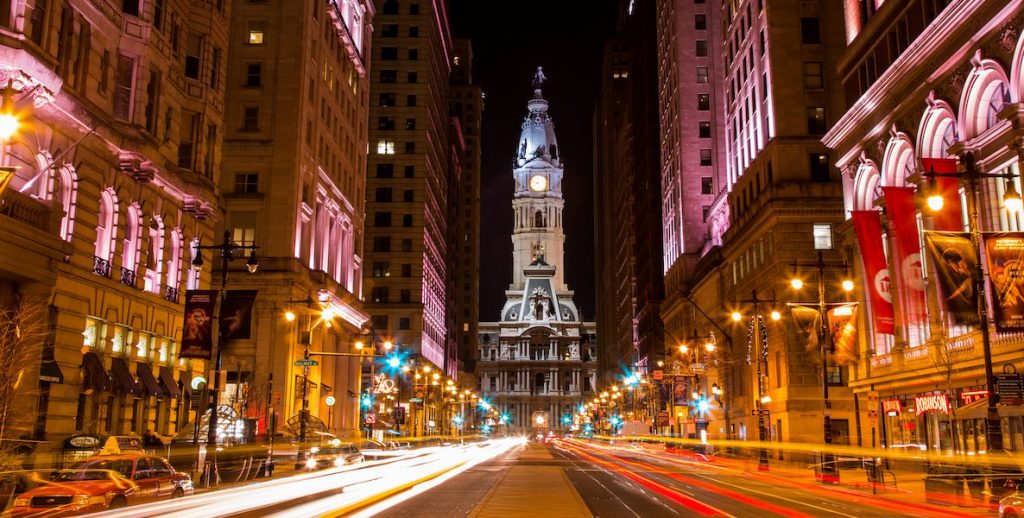Open mouth, insert foot. Poor Mark Squilla had no idea he would get so much flack from the local music scene when he proposed the Special Assembly Occupancies bill back in January, a bill which would have required venue owners to collect names, addresses and phone numbers in a police-maintained registry of musicians, DJs, rappers and other performers.
A petition circulated as soon as the music scene caught wind of it, ending up with just a little under 16,000 signatures all together. There was even pushback from the Philadelphia Police Department, which released a statement stating it had no interest in being responsible for such a database. Squilla back-paddled with a decision to “amend it” after a few days but then decided to squash it all together.
Squilla’s misstep is a sign of an even bigger problem in Philadelphia: a disconnect between local government and the night time/entertainment industry. Just consider what’s at stake. A few years ago, the Greater Philadelphia Cultural Alliance released an economic prosperity report citing a total economic impact of $3.3 billion from the arts on the greater Philadelphia region, including $1.04 billion worth of jobs into our communities. Meanwhile, a more recent study found that Millennials are moving to cities because of the promise of access to a booming nightlife, an amenity that has has become a more attractive quality than cheap housing costs and short commutes.
Millennials are moving to cities because of the promise of access to a booming nightlife, an amenity that has become a more attractive quality than cheap housing costs and short commutes.
In other words: We should be helping the nighttime music scene thrive, not putting up roadblocks.
That’s what Amsterdam and a few other European cities are doing with a “Night Mayor,” whose job is to improve relations between government, businesses and individuals involved in night time entertainment. In Amsterdam, 35-year old former club promoter Mirik Milan was selected as the first Night Mayor. He now spends his days (and nights) working with bars and city officials to create a bustling nighttime scene, while also accommodating the needs of city residents. One solution he’s exploring, for example, is extending club hours to 24 hours a day, which would increase revenue and simultaneously decrease the noise from drunken patrons spilling out into the streets when clubs close.
“For a position like this, you really need to hire someone that has the ability to listen to people and see the big picture, someone who also knows the city administration,” Harnden says. “In order to connect all the stakeholders: investors, [government] agencies, alcohol licensing, department of health, businesses, residents and the universities, you really need to have your foot in both worlds.”
Harnden says she is committed to turning Pittsburgh into a “Sociable City,” a term floating around urban revitalization groups. Best defined according to the Responsible Hospitality Institute (RHI), a sociable city “has a philosophy, infrastructure and leadership with capacity to nurture businesses that provide opportunities for face-to-face connections and social interaction of people. A Sociable City has a healthy balance of safety and nightlife vibrancy, and supports the social experience of the city’s residents and visitors alike.” Cities like San Jose, Edmonton, San Francisco and Seattle are all working towards becoming “sociable cities.”
One place to start is by treating the business of nighttime as carefully as the business of day. “If people looked at what happens after five o’clock the way they do at what happens between 9-to-5, I’m sure it would better support the nighttime economy,” says Suzanne O’Brien, director of operations and development for Simons, Frank, and Co., which operates the Cantina, Triangle Tavern, Khyber and others. “It would be great if we saw the city cleaning the streets for a Saturday night so convention visitors and tourists can see clean streets during their first dinner in the city. We need to think about how we are presenting ourselves as a city at all times.”
In Philly, Councilman-at-large David Oh last year took one step in this direction by organizing a music industry task force intended to serve as an advisory group to city officials. After a hearing to lay out issues of concern to musicians and promoters—such as building a creative economy and facilitating the creation of music venues—the Task Force put out a call for the music industry to nominate individuals to serve as liaisons to the city. No formal appointments have been made as of yet. If they had, perhaps Squilla could have been saved some embarrassment.

